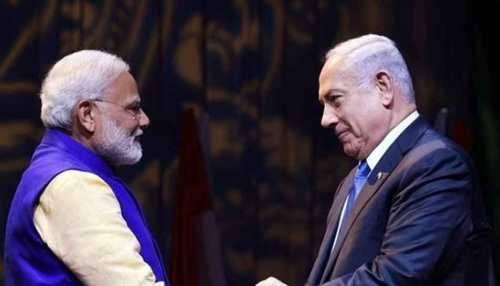
In a pivotal moment in India’s foreign policy, Prime Minister Narendra Modi received a phone call from Israeli Prime Minister Benjamin Netanyahu, who provided an update on the escalating conflict between Israel and Hamas. This development comes as a surprise, given India’s historical support for the Palestinian cause. As the crisis in the Middle East intensifies, India is now confronted with a complex diplomatic situation.
Prime Minister Modi assured Mr. Netanyahu of India’s unwavering support during this challenging period, emphasizing that India “strongly and unequivocally” condemns terrorism in all its forms. In a tweet, PM Modi expressed his gratitude for the update, stating, “People of India stand firmly with Israel in this difficult hour.”
This statement carries significant weight as India has traditionally supported the Palestinian cause and has been forging closer ties with Israel in recent years. India’s aspirations to play a more substantial role in the Middle East will require a delicate balancing act amid growing international divisions over the conflict.
While major Western nations including the United States, the United Kingdom, Germany, France, and Italy have jointly issued a statement reaffirming their “steadfast support” for Israel and condemning Hamas unequivocally, several Middle Eastern countries have placed the blame squarely on Israel for the ongoing violence.
The conversation between PM Modi and Mr. Netanyahu also occurs in the backdrop of Palestine’s ambassador to India, Abu Alhaija, calling on India to intervene and help resolve the crisis. In an exclusive interview with NDTV, Mr. Alhaija attributed the conflict to Israel’s actions in the West Bank and held the international community responsible for the war’s continuation. He urged India to use its diplomatic influence to facilitate a peaceful solution to the crisis.
The territorial dynamics add complexity to the situation, with the West Bank under the control of the Palestinian Authority led by President Mahmoud Abbas, and the Gaza Strip ruled by Hamas. Palestine’s Ambassador expressed the Palestinian government’s opposition to the targeting of civilians and made a plea for India’s involvement in negotiations.
In contrast to India’s stance, a joint statement from leaders of the US, UK, France, Germany, and Italy condemned Hamas’ actions as “appalling” and asserted that there could be no justification for terrorism. They decried recent Hamas attacks on Israeli civilians and expressed support for Israel’s self-defense efforts.
The international community’s differing views on the conflict have left India at the crossroads of diplomacy, balancing its historic ties with Palestine and its growing relationship with Israel. As the situation in the Middle East remains fluid, India’s role and stance in the region will continue to be closely watched.
Sources By Agencies

